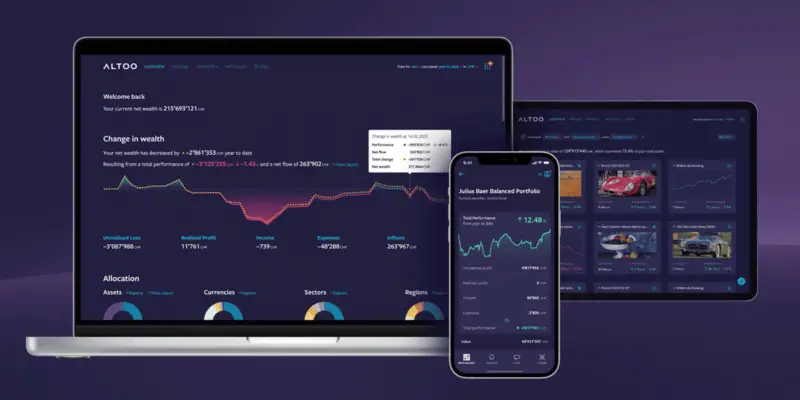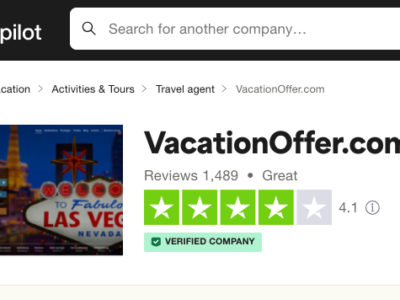Unleash the Power of the new Digital Wealth Management Platform Ditch outdated financial systems & embrace wealth mastery! Discover how a digital wealth management platform empowers you to invest smarter, track growth effortlessly, and conquer your financial goals.
AI Meets Money Magic: Your Future-Proof Wealth with a Digital Wealth Management Platform Let go of financial anxieties & embrace the future of wealth. Explore how a cutting-edge digital platform leverages AI to personalize your investments, automate tasks, & safeguard your financial well-being.
What is Digital Wealth Management?
Digital wealth management is the use of digital tools by professional financial advisors to make sure that clients have the same experience on all platforms and devices. These tools make it easier for people to work together, get more involved, and be more open. They also help improve the success of financial assets.
Digital wealth management, often referred to as robo-advisory or automated wealth management, is a modern approach to financial planning and investment management that leverages technology and algorithms to provide personalized and automated financial advice.
This form of wealth management combines financial expertise with cutting-edge technology to deliver tailored investment strategies and financial planning services to individuals.
Key Features of Digital Wealth Management

The key features of digital wealth management include:
- Online Platforms: Digital wealth management is primarily conducted through online platforms or mobile applications. Users can access their financial information, and investment portfolios, and receive advice from the comfort of their own devices.
- Automated Algorithms: The heart of digital wealth management lies in the use of algorithms and artificial intelligence. These algorithms analyze vast amounts of financial data, market trends, and individual preferences to create and manage investment portfolios. The goal is to optimize returns while considering the investor’s risk tolerance and financial goals.
- Personalization: Unlike traditional wealth management, digital platforms offer a high degree of personalization. Investors typically go through a profiling process where they provide information about their financial situation, goals, and risk tolerance. The platform then uses this information to create a customized investment strategy.
- Cost-Effective Solutions: Digital wealth management platforms often boast lower fees compared to traditional financial advisory services. By automating many processes, these platforms can offer cost-effective solutions, making wealth management services accessible to a broader audience.
- Diversification and Asset Allocation: Robo-advisors excel at implementing diversification and asset allocation strategies. The algorithms behind these platforms analyze various investment options and distribute funds across different asset classes to achieve a balanced and diversified portfolio.
- Continuous Monitoring and Adjustments: The digital aspect of these platforms allows for real-time monitoring of market conditions. If there are significant changes in the market or an investor’s financial situation, the algorithms can swiftly adjust the portfolio to align with the new circumstances.
- Financial Education: Many digital wealth management platforms offer educational resources to empower users with financial knowledge. This may include articles, webinars, and interactive tools that help investors understand market trends, investment strategies, and the implications of their financial decisions.
- Accessibility and User-Friendly Interfaces: Digital wealth management platforms are designed to be user-friendly, making financial management accessible to individuals who may not have extensive financial expertise. The interfaces are intuitive, allowing users to navigate through their portfolios and make informed decisions easily.
- Security Measures: Due to the sensitive nature of financial information, digital wealth management platforms prioritize security. They implement advanced encryption technologies and multi-layered authentication processes to safeguard user data.
Digital wealth management has gained popularity for its ability to democratize financial services, providing efficient and cost-effective solutions for individuals seeking personalized and automated wealth management strategies.
It complements traditional financial advisory services and caters to a tech-savvy generation looking for convenient and accessible ways to manage their finances.
What Are The Benefits of Digital Wealth Management?
Here’s a rundown of the key advantages you can expect to reap from embracing a digital wealth management platform:
1. Democratization of Wealth Management:
Say goodbye to the days of feeling like wealth management is exclusive to the rich and privileged. These platforms break down barriers and make sophisticated investment strategies accessible to everyone, regardless of your income level or financial knowledge.
With user-friendly interfaces and lower minimum investment requirements, it’s now easier than ever to start building your wealth, one swipe at a time.
2. Personalized Investment Strategy:
No more one-size-fits-all solutions. These platforms go beyond generic advice and consider your unique goals, risk tolerance, and financial situation to craft a personalized investment portfolio that caters to your specific needs.
Imagine having an AI-powered financial advisor whispering smart investment moves in your ear, 24/7!
3. Automation and Convenience:
Tired of manually tracking investments and juggling spreadsheets? Automation saves the day! These platforms take the hassle out of managing your finances.
Set your contributions on autopilot, schedule bill payments, and adjust your portfolio based on market changes, all with a few clicks. It’s like having a financial assistant working overtime for you, freeing you up to focus on what truly matters.
4. Increased Transparency and Control:
Say goodbye to opaque fees and confusing jargon. These platforms prioritize transparency, providing you with clear overviews of your investments, transaction history, and fees.
5. Enhanced Financial Literacy:
These platforms aren’t just about managing your money; they’re also about educating you. Gain valuable insights into your spending habits, track your progress toward goals, and learn about various investment strategies.
It’s like having a financial education app built into your wealth management platform, helping you become a more informed and confident investor.
6. Lower Costs and Accessibility:
Traditional financial advisors can come with hefty fees. Digital platforms often offer a more cost-effective solution, with lower minimum investment requirements and transparent fee structures. This makes investing more accessible to a wider range of individuals, opening the door to financial freedom for even the most budget-conscious hustlers.
7. 24/7 Access and Support:
Need financial advice at 3 am on a Tuesday? No problem!
Many platforms offer 24/7 access to support via chatbots, online resources, and even personal advisors. You’re never alone on your financial journey, with a helping hand (or algorithm) always available to guide you.
8. Peace of Mind and Security:
Financial security is paramount. These platforms take security seriously, with advanced encryption, fraud protection, and regulatory compliance measures in place.
You can rest assured knowing your investments are safe and sound, allowing you to focus on enjoying the peace of mind that comes with a well-managed financial future.
Remember, the benefits of digital wealth management are not just about making money. It’s about empowerment, convenience, and achieving your financial goals with confidence. It’s about taking control of your financial future and paving the way for a life you truly love.
So, if you’re ready to say goodbye to financial uncertainty and hello to a brighter financial future, consider dipping your toes into the world of digital wealth management. You might just be surprised at how much it can empower you to achieve your dreams!
What is a Digital Wealth Management Platform?

Digital wealth management platforms give financial companies the newest, most integrated tools and data-driven analytics that their advisors need to come up with smart solutions. They help managers understand their client’s needs better and suggest the best ways to allocate their clients’ money in their portfolios.
What Are The Benefits of a Digital Wealth Management Platform?
Digital wealth management platforms offer a plethora of benefits for both individual investors and financial institutions. Here are some key advantages:
For individual investors:
- Democratization of wealth management: Platforms make investing accessible to everyone, regardless of wealth or experience level. Lower fees and minimum investment requirements compared to traditional advisors open doors for a wider audience.
- Convenience and flexibility: Manage your investments anytime, anywhere, through a user-friendly mobile app or web interface. No more scheduling appointments or waiting in line.
- Transparency and control: Gain clear insights into your portfolio performance, asset allocation, and fees. Make informed decisions with real-time market data and analysis tools.
- Personalized investment strategies: Platforms utilize algorithms and AI to analyze your financial goals, risk tolerance, and investment preferences. They then recommend personalized portfolio allocations and investment options.
- Automated investing: Set up automatic deposits and investments to build wealth over time without constant monitoring. You can even automate portfolio rebalancing to maintain your desired asset allocation.
- Educational resources: Many platforms offer educational materials and tools to help you learn about investing and make informed decisions.
For financial institutions:
- Enhanced client engagement: Platforms foster deeper client relationships through personalized communication, real-time updates, and convenient access to information.
- Improved efficiency and productivity: Automate manual tasks and streamline workflows, freeing up advisors to focus on high-value activities.
- Data-driven insights: Gain valuable insights into client behavior and preferences to personalize recommendations and improve service offerings.
- Cost reduction: Lower operational costs through reduced reliance on physical infrastructure and manual processes.
- Scalability: Cater to a broader client base and expand reach without significant overhead.
Additional benefits:
- Security and compliance: Platforms adhere to strict security protocols and regulatory requirements to protect your financial data.
- Integration with other financial tools: Connect your platform with other financial accounts for a holistic view of your finances.
- Continuous innovation: Platforms are constantly evolving with new features and functionalities to meet changing market needs.
New Digital Wealth Management Platforms
Unfortunately, there’s no single “best” digital wealth management platform as the best one for you depends on your individual needs and preferences. However, I can help you narrow down your options by providing information about some of the top contenders and what they offer:
1. Robo-advisors:
These platforms use automated algorithms to manage your investments based on your goals and risk tolerance. They often have low fees and minimum investment requirements, making them a good option for beginners.
- Betterment: Offers a wide range of investment options, including ETFs, stocks, and bonds. The fee starts at 0.25% of assets under management.
- Wealthfront: Known for its tax-efficient investing strategies. The fee starts at 0.25% of assets under management.
- SoFi Invest: Offers commission-free stock and ETF trading, along with robo-advisory services. The fee starts at 0.25% of assets under management.
2. Hybrid platforms:
These platforms combine robo-advisory features with access to human financial advisors. This can be a good option for those who want some guidance but prefer the convenience of a digital platform.
- Personal Capital: Offers free wealth management tools along with paid financial planning services. The fee starts at 0.75% of assets under management.
- Schwab Intelligent Portfolios: Combines robo-advisory services with access to Schwab advisors. The fee starts at 0.08% of assets under management.
- UBS Wealth Way: Offers a variety of investment options and access to UBS advisors. Fee starts at 0.50% of assets under management.
3. Discount brokers:
These platforms offer low-cost trading commissions and access to a wide range of investment products. They are a good option for experienced investors who want to manage their portfolios.
- TD Ameritrade: Offers commission-free stock and ETF trading, along with a wide range of research tools.
- Charles Schwab: Offers commission-free stock and ETF trading, along with a variety of investment products and services.
- E-Trade: Offers commission-free stock and ETF trading, along with a user-friendly platform.
Additional factors to consider:
- Fees: Compare the fees charged by different platforms to find the most affordable option.
- Investment options: Make sure the platform offers the types of investments you want to own.
- Minimum investment: Some platforms require a minimum investment to get started.
- Customer service: Consider the quality of the customer service offered by the platform.
- Technology: Make sure the platform has a user-friendly interface and mobile app.
I recommend researching these platforms and comparing their features and fees to find the best fit for your needs. You can also consider reading online reviews and speaking with a financial advisor to get personalized recommendations.
Conclusion: New Digital Wealth Management Platform
Overall, digital wealth management platforms offer a powerful and convenient way to manage your investments and achieve your financial goals. Whether you’re a seasoned investor or just starting, there’s a platform out there that can help you grow your wealth.
It’s important to remember that not all platforms are created equal. Do your research and choose a platform that aligns with your specific needs and preferences.
You’re always in the driver’s seat, empowered to make informed decisions about your financial future.
Digital Wealth Management Platform FAQs
General:
- What is a digital wealth management platform?
- A platform that uses technology to automate and simplify investment management, often combining automated tools with human expertise.
- What are the benefits of using a digital wealth management platform?
- Lower fees, increased accessibility, 24/7 access, personalized investment strategies, automated rebalancing, and educational resources.
- Who are digital wealth management platforms for?
- Investors of all levels, from beginners to experienced traders, seek convenience and affordability.
- Are digital wealth management platforms safe?
- Platforms are typically regulated financial institutions with security measures like encryption and fraud protection.
Features and Functionality:
- What investment options do digital wealth management platforms offer?
- Stocks, bonds, ETFs, robo-advisor portfolios, alternative investments.
- How do digital wealth management platforms determine my investment strategy?
- Analyze your risk tolerance, financial goals, and investment preferences.
- Can I customize my investment portfolio on a digital wealth management platform?
- Some platforms offer flexibility, while others provide pre-built portfolios.
- How can I track my investments on a digital wealth management platform?
- Real-time performance tracking, detailed reports, and account activity summaries.
Fees and Costs:
- How much do digital wealth management platforms cost?
- Fees vary depending on the platform, account size, and services used. Common models include flat monthly fees, percentage of assets under management, or transaction fees.
- Do digital wealth management platforms have minimum investment requirements?
- Some platforms have minimal investment requirements, while others are accessible with any amount.
Security and Regulation:
- How secure are my assets on a digital wealth management platform?
- Platforms must comply with regulations and use security measures to protect client data and assets.
- Are digital wealth management platforms regulated?
- Yes, they are typically regulated by financial authorities like the SEC or FINRA.
Additional Considerations:
- What kind of customer support do digital wealth management platforms offer?
- Chat, phone, email support, access to financial advisors.
- Can I integrate my existing financial accounts with a digital wealth management platform?
- Some platforms offer account aggregation for a holistic view of your finances.
- What are the pros and cons of using a digital wealth management platform compared to a traditional financial advisor?
- Consider convenience, cost, level of personalization, and access to human expertise.
Remember, this is just a starting point. Feel free to ask me any specific questions you have about digital wealth management platforms!
Discover more from Digital Wealth Guru
Subscribe to get the latest posts sent to your email.










Comments